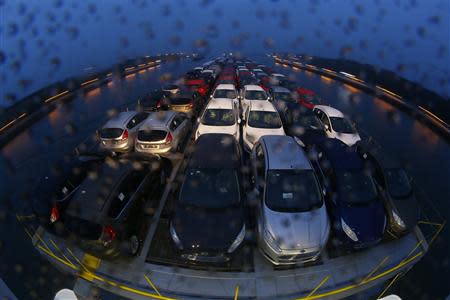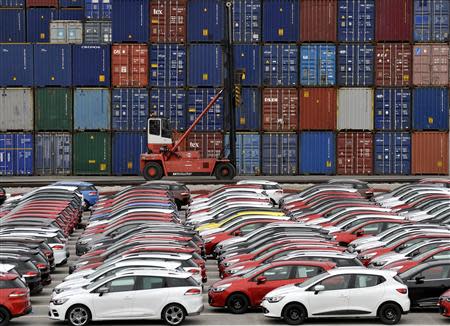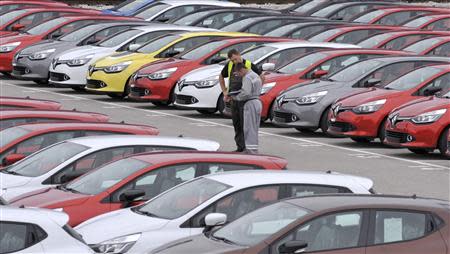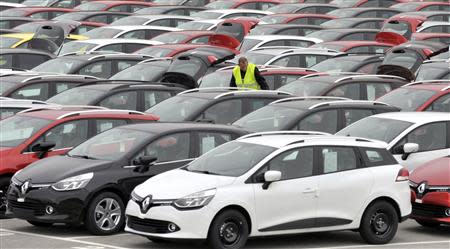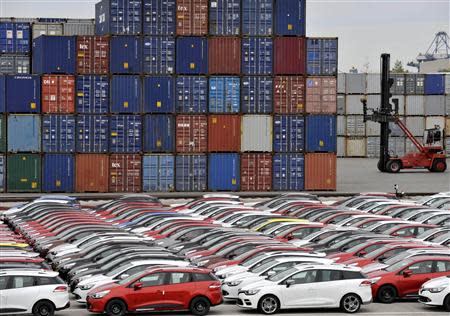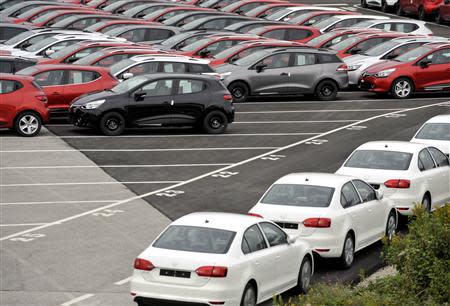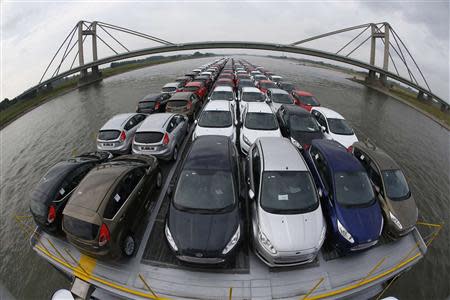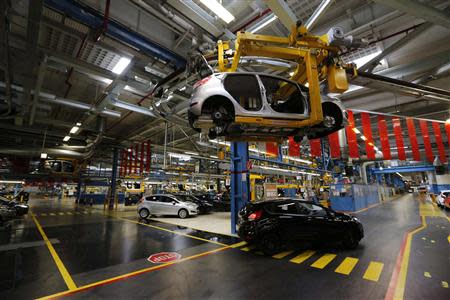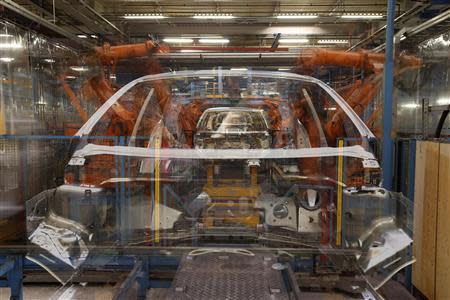Europe's car market grows in Sept from record low levels
FRANKFURT (Reuters) - A surge in UK auto sales and an extra working day boosted Europe's new car market in September, giving evidence that demand may be slowly bottoming out after plumbing lows not seen in over 20 years. The European car market has been a prime casualty of the continent's economic crisis as hard-pressed consumers defer purchases and a number of leading makers such as Peugeot have been forced into radical restructurings. Automotive industry association ACEA said on Wednesday new car registrations in the European Union climbed 5.4 percent from a year ago to 1.16 million vehicles in September, only the third monthly gain in the past two years. The figures echo findings earlier this month that sales of new cars had grown in France and Spain during September. ACEA's numbers showed the improvement was led by a 12 percent rise in sales in top market Britain to 403,000 vehicles, while sales in Germany shrank 1.2 pct to 247,000. The monthly total was still the second-lowest September figure since ACEA began gathering data for the 27 EU member states in 2003. Industry watchers have been looking for signs of recovery after the EU car market crashed to record lows in August. "The worst is behind us. The decline in sales has considerably slowed and we are now witnessing signs of recovery in demand," said Peter Fuss, senior advisory partner at the Global Automotive Centre of accountants EY (formerly Ernst & Young). "The sales, however, continue to be artificially boosted by huge discounts and self-registrations by dealers," Fuss added, referring to cars still held in showrooms. He warned it would take at least two years before the market was strong enough to grow on its own without the aid of incentives. BETTER GAUGE In a sign of recovery in the ailing euro zone periphery, car demand in Greece, Ireland and Portugal jumped by double-digit rates, albeit from depressed levels. For the first nine months of the year as a whole, ACEA said registrations in Europe still fell 4 percent from the year before to 9.33 million, on the back of weak demand in Germany, Italy and France - and in the Netherlands, where sales have plummeted 29 percent year-to-date. September volumes may be a better gauge of underlying trends than August, since the latter's results are artificially depressed given many European car buyers are on holiday. It is also a crucial month for the UK market, since it accounts for about 18 percent of annual volumes. The UK increase was the sixth straight double-digit monthly rise. Among manufacturers, the biggest winner in September was Renault , which increased sales 17 percent at its flagship brand, while its low-cost Romanian badge Dacia saw volumes leap by 40 percent. Germany's Daimler also posted a strong month with sales of its Mercedes-Benz brand increasing nearly 14 percent after the French government was forced to end its sales ban on certain vehicles. Volvo (part of China's Geely Holding Group ) reported a surprisingly strong gain of 13 percent to help its otherwise weak performance so far this year, while brands heavily dependent on the dismal Italian market such as Fiat's Lancia and Alfa Romeo continued to see volumes fall at a double-digit rate. Japanese carmakers Toyota , Mazda , Suzuki and Mitsubishi all managed to grow European volumes, helped by a soft yen, new smaller diesel engines in their line-up and new models tailored to European tastes. (Reporting by Christiaan Hetzner; Editing by David Cowell and David Holmes)

